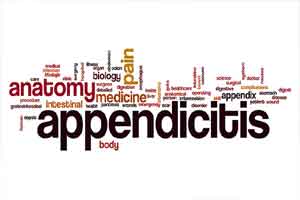- Home
- Editorial
- News
- Practice Guidelines
- Anesthesiology Guidelines
- Cancer Guidelines
- Cardiac Sciences Guidelines
- Critical Care Guidelines
- Dentistry Guidelines
- Dermatology Guidelines
- Diabetes and Endo Guidelines
- Diagnostics Guidelines
- ENT Guidelines
- Featured Practice Guidelines
- Gastroenterology Guidelines
- Geriatrics Guidelines
- Medicine Guidelines
- Nephrology Guidelines
- Neurosciences Guidelines
- Obs and Gynae Guidelines
- Ophthalmology Guidelines
- Orthopaedics Guidelines
- Paediatrics Guidelines
- Psychiatry Guidelines
- Pulmonology Guidelines
- Radiology Guidelines
- Surgery Guidelines
- Urology Guidelines
Colonoscopy may prompt appendicitis: JAMA Surgery

According to a recent research, colonoscopy can "prompt" appendicitis up to one week after the examination, in certain patients.
But, drawing such a conclusion required access to a large amount of data in order to achieve statistical significance.
Dr Marc D. Basson, senior associate dean for Medicine and Research at the UND School of Medicine & Health Sciences, and his team accessed to Veterans Administration national data, which identified nearly 400,000 veterans across the United States who had experienced screening colonoscopy between January 2009 and June 2014, and whose incidence of subsequent procedures could be tracked.
After seeing the data, Basson said, "Depending on how you ask the question, it turns out that the rate of appendicitis and appendectomy in the first week after a colonoscopy was at least fourfold higher compared to these patients' next 51 weeks. By some measures, the increase was 12 fold".
He also noted that the research accounted for differences in the coding of procedures and other discrepancies in the administrative data.
Although the reasons why colonoscopy increases the risk of appendicitis remain unclear, the article offers some theories, including asking if bacteria within the colon are altered as the bowel is prepared prior to colonoscopy in ways that increase the likelihood of inflammation.
Despite the paper's significant findings, Basson urged patients not to draw the wrong conclusions.
"To be clear, this is not to say that colonoscopy isn't safe or that people should be afraid to have the procedure. Colonoscopy is valuable and the appendicitis rate is still very, very low - so low that we wouldn't even have been able to define this increased risk without this huge dataset", shared Basson.
He added, "But it is good to know that this is real because this wasn't known before. This opens up a new area of investigation, and now we can begin to ask questions about why this is happening. In addition, we can now have a higher index of suspicion for appendicitis in patients who have right-lower abdominal pain after colonoscopy, which may lead to earlier diagnoses".
Basson concluded that the team needs to do more work so we can learn more about all of this.
The study was published in the journal JAMA Surgery.

Disclaimer: This site is primarily intended for healthcare professionals. Any content/information on this website does not replace the advice of medical and/or health professionals and should not be construed as medical/diagnostic advice/endorsement or prescription. Use of this site is subject to our terms of use, privacy policy, advertisement policy. © 2020 Minerva Medical Treatment Pvt Ltd